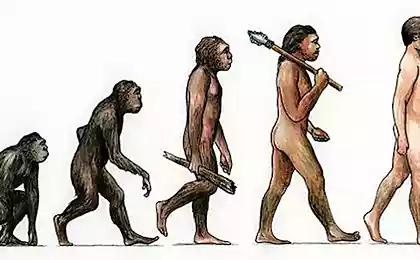1015
Science of Man.

The origins of psychology can be traced already among the ancient Greeks and Romans. More than two thousand years ago philosophers were discussions about some of the same issues that now cause difficulties for psychologists. However, the formal birth of psychology as an independent discipline dates back to 1879 (Fancher, 1990). This year, in Leipzig (Germany) Wilhelm Wundt founded the first laboratory for the experimental study of psychic phenomena. In subsequent years, psychology was going through a period of rapid growth. It produced a lot of different conceptual models to plan the research and interpretation of experimental data. One of the essential aspects of the steady occurrence of psychology in modern science is the study of her personality. The main purpose of today's psychology of personality - from the standpoint of science to explain why people behave as they do. Scientific psychology prefers to work with a relatively simple, clear concepts, accessible to empirical testing. It also uses adjusted and accurate as possible, methods of research. Such a methodological orientation implies the necessary limitations: not every concept or method may be applied in the study of personality. However, most psychologists believe that in explaining the complex nature of human behavior is ultimately the greatest weight will be just a scientific approach.
Modern psychology of the person, as a scientific discipline, transforming the speculative arguments about the nature of man in the concept, which can be verified experimentally, and does not rely on intuition, folklore and common sense. For example, instead of the assumptions about why teenagers drink and run away from home, the researchers should formulate their own idea about the psychology of adolescence and personal mechanisms of deceit in adolescents. At the same time related to the "science of personality" rather contradictory, because its development generates some natural concerns. So, no matter how tempting it may seem to us to comprehend the causes that underlie those or other of our actions, we are at the same time resist when someone else tries to give an objective picture of our behavior, such as we describe. In psychology itself has been some resistance to the process of "objectification" of personality: some psychologists argue that efforts in this direction can go too far, and it threatens the destruction of the submission of the uniqueness and complexity of human nature. Instead, they call to focus on the study of more subtle properties of the people - their fight for personal and spiritual enlightenment - which are reflected both in literature and in works of art, such as Shakespeare's plays or paintings by Goya. However, despite the fact that literature, art, film, history, religion can indeed provide substantial assistance in the comprehension of human behavior, it is still necessary to distinguish between information obtained in this way, the data from the research. Moreover, since science currently does not provide answers to all the questions (and probably never will), we have the most efficient use of empirical information, referring to the same time constraints which are inherent in scientific methods for the study of people . Study of the problems of the human person engaged Personology - the term proposed by Henry Murray (Murray, 1938) to refer to both experimenters and theorists in the field of personality psychology.
Another goal of the psychology of personality - to help people get more out of life. Continuing to develop the theory and experimental research, many Personology doing now finding ways to implement a more efficient and effective strategies to overcome the difficulties of life. The achievements here include the new forms of psychotherapy, the various training programs and changes in the psychosocial environment, allowing people to discover all the best of what they can do.
























